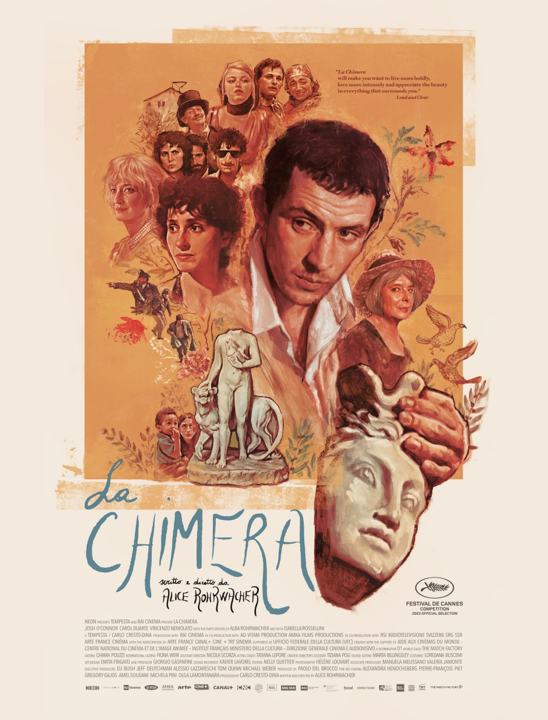




| Director | David Lean |
|---|---|
| Country | UK |
| Year | 1945 |
David Lean’s Brief Encounter, adapted from Noël Coward’s one–act play Still Life, premiered in 1945 and swiftly became one of British cinema’s defining romantic dramas. Released just after the Second World War, it spoke to an audience steeped in emotional reserve, moral duty, and the quiet heroism of everyday life. The film was produced under Coward’s banner, Cineguild, following a successful creative partnership between Lean and Coward on In Which We Serve and This Happy Breed. But Brief Encounter showed Lean stepping decisively into his own as a director of great emotional intelligence, bringing an unusual psychological nuance to British cinema of the era.
For modern audiences, the film remains a touchstone of screen romance – not for passion fulfilled, but for passion painfully withheld. It has influenced filmmakers from Wong Kar–wai to Richard Linklater and continues to appear in BFI and Sight & Sound polls of the greatest British films ever made.
Celia Johnson delivers what is widely regarded as one of the great performances in British cinema. Her expressive eyes, the micro–tremors of her mouth, and the careful modulation of her voice articulate an entire interior storm beneath a calm, genteel exterior. Laura’s internal voiceover, drawn from Coward’s writing, lays bare her conflict: she is intelligent enough to recognise the boundaries of her life and imaginative enough to yearn for something beyond them.
Trevor Howard’s Alec is gentle, principled, and refreshingly shy for a romantic lead of the period – a man torn between professional ethics, familial loyalty, and an overwhelming connection he cannot suppress. Together, Johnson and Howard create a relationship that feels emotionally adult and painfully plausible. The chemistry is unmistakable yet never sensationalised.
Supporting characters, particularly Stanley Holloway and Joyce Carey as the café staff, offer moments of warmth, humour and social contrast, anchoring the lovers’ experiences in a broader tapestry of British life.
At its core, Brief Encounter is a study of restraint: emotional restraint, social restraint, moral restraint. It is a love story shaped not by what is said, but by what must remain unspoken. The post–war setting reinforces this emotional economy – a world rebuilding itself through order, duty, and quiet endurance.
The film also interrogates the limits placed on women in mid–century Britain. Laura’s guilt is intensified by her roles as mother and wife, and by her sense of what “goodness” means. The story unfolds as an extended confession to the audience, revealing the complexity beneath a seemingly ordinary life.
Tone–wise, Lean balances melodrama with naturalism. The emotions are large; the settings are small. The intensity is never shown through embraces or declarations, but through glances, pauses, hands brushing on a table, and Rachmaninoff’s sweeping Piano Concerto No. 2 (almost a third protagonist) which gives voice to the feelings Laura must silence.
Lean’s direction is meticulous, using modest locations to create grand emotional architecture. The railway station becomes a symbol of transience, timing and missed opportunities. His use of shadow, steam and tight close–ups evokes German expressionism, while maintaining a distinctly British sense of understatement.
The film’s circular structure, opening with the lovers’ last meeting and replaying it with full context, reinforces the sense of inevitability. Flashback is used not as exposition but as emotional excavation, gradually revealing the full depth of what Laura has risked and lost.
Upon release, critics praised the film’s emotional maturity and cinematic elegance. It has since grown in stature, regularly appearing in discussions of the most romantic films ever made. Peter Bradshaw has called it “a masterpiece of suppressed passion,” while The New Yorker described it as “one of cinema’s most moving portraits of impossible love.” Its enduring appeal lies in its precision: a film about ordinary people experiencing extraordinary emotion, crafted with clarity, compassion and exquisite restraint.
In an effort to reduce our paper usage, we stopped offering printed copies of our popular Film Notes at our screenings.
Instead, we are encouraging our members to read the Film Notes online. For those who wish to do so, it is still possible to print these pages prior to the film.
Alternatively, if you want to read the notes just before or just after the film, and also minimise your paper consumption, then you can scan the QR code to your phone and then download the webpage.
